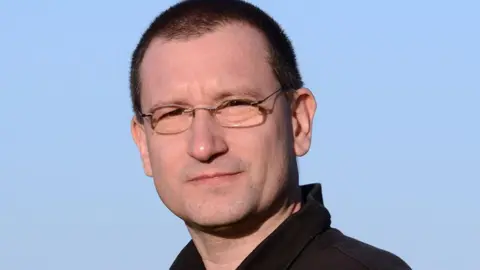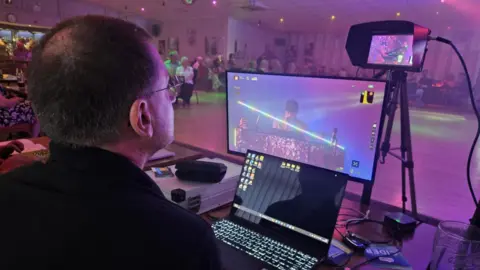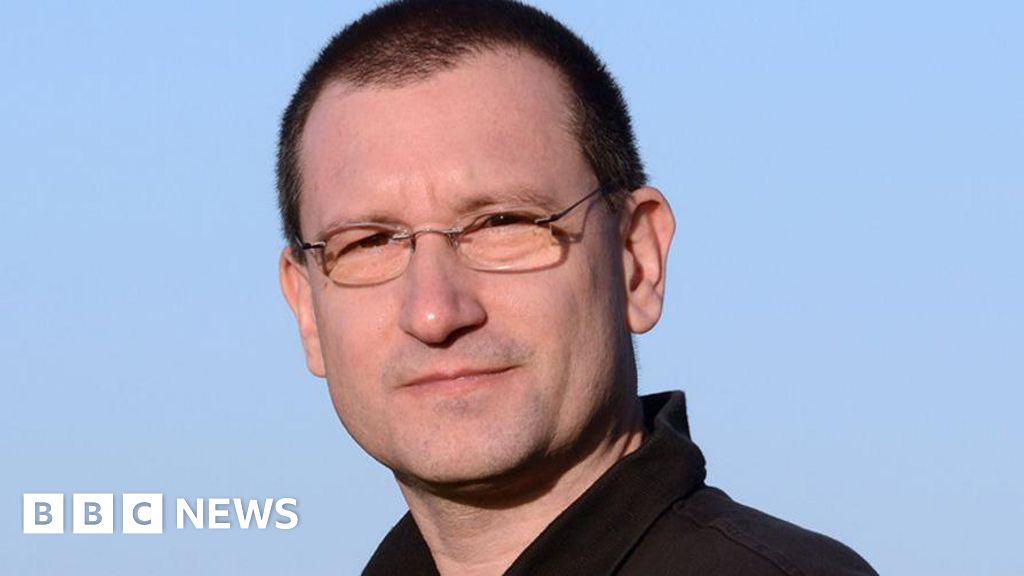Joanna TaylorCambridgeshire
 DAVID JOHNSON
DAVID JOHNSON
David Johnson set up DMJ-Imagery in 2016 and will close the company in April
A videographer closing his 10-year-old business has said the “influx of AI” means his workload had “plummeted”.
David Johnson, from Chatteris in Fenland, said his company DMJ-Imagery would shut in April after demand for his services “dried up” over the last 12 months.
He suggested businesses were turning to artificial intelligence (AI) for work he might previously have been paid for, such as film production, video editing and script writing.
The Association of Photographers (AOP) trade body told the BBC that videographers faced a “relentless threat to their livelihoods” due to the “increasing encroachment” of Generative AI.
This is technology that can produce images, video, audio and text with simple text prompts and minimal human input.
The government said there was “vast potential” for AI to boost growth in the UK.
Mr Johnson set up his company, of which he is the sole member, after more than 20 years with the Royal Air Force – nine of which were spent as a photographer.
He has worked on adverts, films, documentaries, audio dramas and podcasts across Cambridgeshire and Lincolnshire.
A highlight, he said, was helping put together videos for Escape From Fort Lagoon – an immersive touring outdoor escape room.
 DAVID JOHNSON
DAVID JOHNSON
Mr Johnson has worked on adverts, promotional videos and creative projects
While freelancing was always a “struggle”, Mr Johnson said his business was “reasonably financially consistent” – even throughout the Covid pandemic – until demand “plummeted”.
“Living in the Fens, there’s not a lot of money around,” he said. “That, and the influx of AI, has had quite a significant impact. The work has basically dried up in the last 12 months.
“Either businesses don’t have the money, which leads them to go down the AI route, or they just start exploring and experimenting and finding out what they can and can’t do.”
‘No soul’
He added there was “no passion, soul or emotion” in AI-generated art he had previously seen.
“You still need to have that human intervention,” he said.
Isabelle Doran, chief executive of the AOP, said AI services “evidently now directly compete with photographers’ and other visual artists’ livelihoods”.
She added that image-makers had “yet to see any acknowledgement, compensation or transparency” over the use of their work “scraped from the internet without permission” to train AI models. Ms Doran said 58% of the association’s members said they had lost work due to Generative AI, in a poll.
Mr Johnson said he planned to spend his time working on an “unfiction” project entitled The Eberswalde Enigma after his company gets dissolved. Unfiction is a burgeoning genre in which a fictional story is told through various platforms, including on social media, videos and podcasts, and presented as if it is real.

